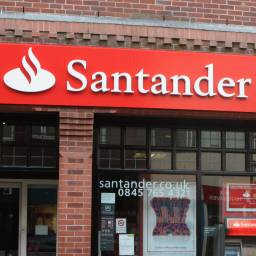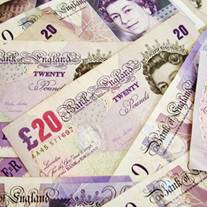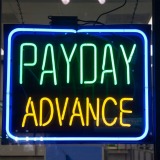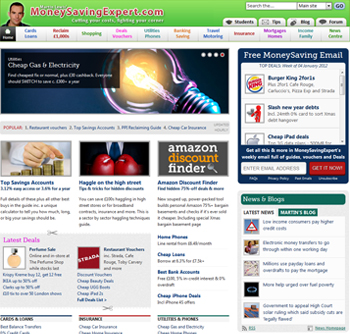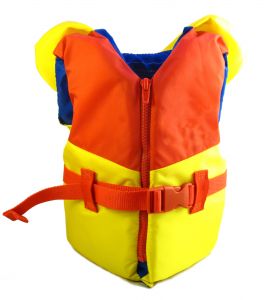
The whiff of panic over the collapse of Northern Rock, B&B;, Icelandic banks and others may seem distant memories, yet every sensible saver needs to remember the lessons and ask "Are my savings safe?"
This is a regularly updated account-by-account savings safety-check up, showing what protection you have if the worst happens and how to maximise your savings.
Quick Links
The Five Facts Everyone Should Know
Before we get to the nitty-gritty, if you only remember five things about this, make it...

Every UK REGULATED account gets £85,000 protection.
All UK regulated current or savings accounts and cash ISAs in banks, building societies and credit unions are covered by the government-backed Financial Services Compensation Scheme (FSCS). So if the bank fails, you'd get back up to £85,000 per person per financial institution, the majority should get it within seven days.

Not all UK savings are UK regulated.
Most banks including foreign-owned ones like Spain's Santander are UK regulated. Yet a few EU-owned banks opt for a 'passport scheme' where you rely on protection primarily from their HOME government.
This includes ING Direct, Anglo-Irish, Triodos & more. See foreign banks list for full details.

The amount's double in joint accounts.
Cash in joint accounts counts as half each, so together you've £170,000 protection.
If you've an individual account with the same bank, half the joint savings count for your total exposure and any amount over £85,000 isn't protected (for more info see the joint accounts protection below).

An institution is NOT the same as a bank.
The protection's per institution not account, so four accounts with one bank still only get £85,000. The definition of 'institution' depends on a bank's licence and giant banking conglomerates make it complex.
E.g. Halifax and Bank of Scotland (sister banks) accounts are only covered up to £85k combined. RBS and NatWest are also sisters but the £85k limits are SEPARATE. See What counts as a bank? tool.

Spread savings to keep 'em safe.
For perfect safety, save no more than £83,000 per institution (the extra £2,000 gives room for interest). Spreading can be worth it even if you've under £85,000; if your bank went bust the money may be inaccessible while you get it back. Using two accounts mitigates the risk.
For a full list of top accounts see best-buy savings guide, or for how to save safely inc. dealing with very big amounts see 100% safety guide.
What does the FSCS cover?
The Financial Services Compensation Scheme (FSCS) only applies to organisations regulated by the Financial Services Authority (FSA). This was the big problem with the Christmas Savings Scheme Farepak, as it had no protection whatsoever; when it went bust the money was gone.
The main categories of protected savings are:
- Bank and Building Society accounts.
All UK credit unions, bank or building society savings account, current accounts and small business accounts (read full details) are covered to some degree by the FSCS.
Certain types of Guaranteed Equity Bonds, which count as 'deposit accounts' where the interest paid depends on the stockmarket's performance, may also count for 'savings' protection. -
Any cash saved within a Sipp Pension.
If you have a Self Invested Personal Pension and are keeping some of the money in cash savings there (as opposed to investment funds) then you get the full FSCS savings protection on that, separate to any investment protection (read full details).
Sipp providers will tell you which banks the cash is held in, so you can check if it's linked to any others you have savings with (see linked banks table). -
Any cash ISA (or Toisa).
These are simply a form of tax free savings account so they have the same protection. If you have a Cash ISA or had one of its forerunners, the Tessa Only ISA (Toisa), then you get exactly the same FSCS protection as in a savings account.
Am I protected if my investment company goes bust?
This guide's primarily about 'saving', if you put money in stocks and shares, funds, or pensions then that's a 'risk based 'investment' NOT savings, and a totally different FSCS protection applies...
Investor protection is about providers going bust not you losing money
The FSCS investment protection applies if you lose money due to the product provider of the investment going bust (e.g you've got a Shares ISA with a bank and the bank goes bust) not if the underlying investment goes bust.
In other words if you've got shares in a company and it goes kaput, or you've bought a fund and it performs poorly, then you've no protection as that's the nature of investing.
Yet in many cases if you're buying shares or funds through a company, e.g. some stockbrokers just sell you shares, the fact the stockbroker went bust wouldn't actually matter, you'd still own the shares so there'd be no compensation.
Investment protection varies with each product's structure. Always check, many limits changed on 1 Jan 2010, so if the company went bust before then different limits may apply.
- Investments funds.
If you've invested in an investment fund (e.g. through a discount broker), you'll get 100% of the first £50,000 back. - Pensions & Life Assurance.
Stakeholder pensions and money paid into life assurance products usually fall under the category of 'long-term insurance', meaning 90% of what's in them is protected. This is the same even if your stakeholder pension is held in 'cash funds'. - Self Invested Personal Pensions (SIPPs).
A Sipp is a completely DIY pension. which gives you complete control of your pension pot for better or worse! The protection your cash gets depends on how you decide to use it. But importantly, in general the cash is ringfenced from the Sipp provider, meaning if IT goes bust, your money is safe.
If you choose to invest in stockmarket funds or other investment vehicles, 100% of the first £50,000 is covered.
Am I protected if my insurance company goes bust?
If you take out home, car, travel, life or even PPI loan insurance, and the provider goes into default, then the government-backed FSCS scheme kicks in.
There are two main ways in which it protects you.
- If you need to claim from a bust insurer
The FSCS's main objective is to 'maintain continuity'. This means if your insurer goes bust, it will try and find another provider to take over your policy, or issue a substitute policy. However, if you have any ongoing claims, or need to make a claim before a new insurer is found, the FSCS should ensure these are covered. - If it goes bust and you paid upfront
If you've paid for cover for a year, but the company goes bust after a month or two, then you would lose out.
To protect against that, if the FSCS can't transfer your policy to another provider, you'll be given a period of time to take out alternative insurance, and any money you've already paid will be refunded as compensation via the FSCS. To help explain, here's a quick example...
You paid for a year long policy in January and the insurer went bust in September. If the FSCS can't get the policy transferred elsewhere, then you will receive 4 months compensation of the original cost.
The limits of the compensation depend on whether the policy is compulsory or not.
Compensation for policies like third party car insurance, which you are required by law to have, are unlimited, so you get 100% of the premium back. Non-compulsory policies (e.g. home, travel, life and PPI) have cover 90% of the money paid.
What isn't covered - Saving Stamps, Clubs, Points & More
The answer is pretty much everything else. If you've a savings scheme for a hamper or Christmas club, got money in Paypal, cash stored up with a cashback site or points in a loyalty card scheme, then you may be protected by an industry scheme but not the government scheme.
It's also worth being aware that if you're ordering or buying goods where you don't receive them immediately, such as as a kitchen, flights, computer, then the purchases aren't covered either. Though there is a way to protect yourself for free, see the Is my Spending Safe? guide.
Don't miss out on updates to this guide Get MoneySavingExpert's free, spam-free weekly email full of guides & loopholes
How does the protection work?
 All UK regulated deposits, which includes money saved and accumulated interest, in bank or building society savings products, are covered by the FSCS.
All UK regulated deposits, which includes money saved and accumulated interest, in bank or building society savings products, are covered by the FSCS.
This is an independent fund set up by UK financial bodies and regulated by the FSA, which promises that, in the event of a bank collapsing, you get some of your money back, though it's likely you'll lose access to the cash while compensation is being dished out.
This applies to everyone, no matter their age (including children), or where they live - provided the bank is registered in the UK and crucially
"100% of the first £85,000 you have saved per financial institution is protected."
The biggest issues here are what counts as an institution? and what's a UK regulated institution? (see later for both) but they're not the only ones... (click to open/close)
The rates were different before December 2010
The amount has been changed three times, first on the back of Northern Rock, then Bradford & Bingley, then to bring the UK in line with the rest of Europe. If you're one of the very few who still have outstanding issues, the amount you get will depend on the time of the 'compensation trigger'..
Defaults between 7 Oct 08 and 30 Dec 2010. If your bank went bust between these dates, you'd get back the first £50,000 per person, per institution.
Defaults between 1 Oct 07 and 6 Oct 08. If it went bust between 1 Oct 2007 and 6 Oct 2008, you'd get 100% of the first £35,000 back.
Defaults before 1 Oct 07. You'd get 100% of the first £2,000 of your cash back and 90% of the next £33,000 on top; so you'd get £31,700 of the first £35,000 back.
The limit's doubled in a joint account.
Money saved in an account registered in two names receives twice the protection; that's therefore the first £170,000. Don't get too excited though, this isn't an extra allowance; it's simply the same protection as if each account holder had a separate account.
In fact the best way to think about this is half the money in the account belongs to each person. An example should help...
Sensible Steve has £170,000 in a joint account in RiskyBank with his girlfriend Saver Sally, plus £20,000 in a separate account of his own with the same bank.
If RiskyBank went bankrupt, then if you consider half the joint account money (£85,000) is Steve's, then added to his separate savings that's £105,000. Which means he would lose £20,000.
That means it is possible you lose out by having a joint account...
Imagine Reckless Rick and his partner Rachel have a RiskyBank joint account with £160,000 in, plus Rachel has £10,000 in her own account with the same bank.
Here, if the bank went bust, the full joint account balance would be covered; it is split out as £80,000 each, so Rachel only then has £5,000 worth of protection left to cover her separate account, leaving the other £5k at risk.
So even though between them they've only £170,000 in savings, it's not all covered by the compensation scheme. They would've been better off simply having all the money in the joint account, or having £85,000 in separate accounts each.
The threshold includes interest too.
The protection applies both to the amount you saved and any interest that would've accrued on the day it went bust.
That means if the interest pushes you over the £85,000 limit then any amount above it isn't covered. So you may want to put a little under £85,000 in if you're spreading for safety.
Savings are separate from debts.
If you have debts, such as a mortgage, loan or credit card with a bank that you also have savings with, these two things will be treated separately. This means that, if the bank went bust, you'd receive compensation for your savings from the FSCS, and still owe the bank the full amount of your debts.
This system changed in January 2011; previously your savings were subtracted from debts automatically. The new arrangement gives you the cash to do whatever you would like with; you aren't forced to pay off debts that you wouldn't have under normal circumstances.
If you have savings in one institution which come to more than the FSCS limit of £85,000, then anything over that are likely to be automatically deducted from your debts when administrators come into the bank - another good reason to adhere to the limits.
However, it's worth noting that if you have substantial savings, paying off most loans and credit cards is a good idea (see the Should I Pay off my Debts? guide), though for mortgage debt it's not always the best choice (see Should I Pay off my Mortgage? guide).
Protection won't be paid out instantly.
If, in the unlikely event of your bank collapsing, you want to get money out straight away, the chances have now improved. As of 31 December 2010, the FSCS has set itself a new target of having paid the majority of claimants within seven days, and everyone by day 20.
This is as yet untested - though the only big payout in recent years for savers in Icesave went pretty smoothly. It's a strange scenario - no one really wants this procedure to be tested, but until it is, we won't know how well the new system works.
Offshore accounts aren't usually covered.
Any savings held offshore, i.e., particular types of savings accounts not any money held in a non UK bank, are usually regulated by the local financial authority, rather than the FSA.
As the FSCS protection only applies to companies regulated with the FSA, if your savings are held offshore check with your lender where it is regulated. For example, the FSCS does not cover savings outside the EEA, or even in the Channel Islands or Isle of Man.
What counts as a 'financial institution'?
There's no easy definition, over the years many banks have merged or been taken over, blurring the lines as to what counts, technically it's all about the company's registration at the regulator, the FSA.
This can leave some strange results - for example.
- Put money in the Halifax, Bank of Scotland and Birmingham Midshires, all part of the giant HBOS group and the protection limit is combined so you only get £85,000 for all together.
- Put money in the Royal Bank of Scotland, NatWest and Ulster, which are all part of the giant RBS conglomerate, and you get separate £85,000 protection for each.
We checked the FSA registration number on each banks website. If an institution isn't listed it does not mean it is not protected. Last full update October 2011
Alternatively see a full list of all banks
This chart shows you which banks (not investment companies) are standalone and which are part of the same institution. Any banks shaded in the same colour (except white!) are linked and share protection, so if you have money in a combination of linked banks you only get one lot of the FSCS safeguard.
As an aid to the colourblind, institutions which share an FSA registration are also number coded in brackets.
| AA (1) | Aldermore |
Alliance & Leicester (2) |
|
Allied Irish (17) |
Anglo Irish (P) |
Asda |
|
Aviva (1) |
Bank of Baroda |
Bank of China UK |
|
Bank of Cyprus (P) |
Bank of Ireland UK (4) | Bank of Scotland (1) | |
Barclays (10) |
Barnsley BS (12) (See note) | Bath BS |
|
Beverly BS |
Birmingham Midshires (1) |
Britannia (3) |
|
Buckinghamshire BS |
Butterfield Bank |
C.Hoare & Co |
|
Cahoot (2) |
Cambridge BS |
Capital One/Castle (13) |
|
Cater Allen |
Charity Bank |
Chelsea BS (12) (See note) | |
| Cheltenham & Gloucester (6) | Cheshire BS (15) (See Note) | Chorley & Dist BS |
|
Citibank |
City of Derby BS |
Close Savings |
|
Clydesdale Bank (7) |
Coutts |
Coventry BS (16) See Note | |
Credit Unions (all separate) |
Cumberland BS |
Darlington BS |
|
Derbyshire BS (15) See Note |
Dudley BS |
Dunfermline BS (15) See Note |
|
Earl Shilton BS |
Ecology BS |
Egg (12) (See note) |
|
First Direct (9) |
First Trust (17) |
Firstsave |
|
Furness BS |
Halifax (1) |
Hampshire Trust |
|
Hanley BS |
Harpenden BS |
||
Hinckley and Rugby BS |
Holmesdale BS |
HSBC (9) |
|
ICICI |
ING Direct (P) |
Intelligent Finance (1) |
|
Investec |
Ipswich BS |
Islamic Bank of Britain |
|
Julian Hodge Bank |
Kent Reliance BS |
Leeds BS |
|
Leek BS |
Liverpool Victoria |
Lloyds TSB (6) |
|
London Scottish Bank |
Loughborough BS |
Manchester BS |
|
Mansfield BS |
Marfin Laiki Bank (P) |
Market Harborough BS |
|
Marks and Spencer |
Marsden BS |
Melton Mowbray BS |
|
Metro Bank |
Monmouthshire BS |
National Counties BS |
|
Nationwide (15) See Note |
Natwest (separate to RBS) |
Newbury BS |
|
Newcastle BS |
Northern Bank |
Northern Rock |
|
| Norwich & P'boro BS (12) (See note) |
Nottingham BS |
Penrith BS |
|
Post Office (4) |
Principality BS |
Progressive BS |
|
Punjab National Bank |
Raphaels Bank |
Rothschild |
|
Royal Bank of Scotland |
Saffron BS |
Saga (1) | |
Sainsburys |
Santander (2) | Scottish BS |
|
Scottish Widows Bank |
Secure Trust Bank |
Shawbrook Bank |
|
Shepshed BS |
Skipton BS (13) See note |
Smile (3) See note |
|
Stafford Railway BS |
Standard Life (10) |
State Bank of India |
|
Stroud & Swindon (16) See Note |
Teachers BS |
Tesco |
|
The Co-op (3) See note |
Tipton & Coseley BS |
Triodos (P) |
|
Turkish Bank UK |
Ulster Bank |
United National Bank |
|
United Trust |
Vanquis Bank |
Vernon BS |
|
Virgin Money |
Weatherby's Bank |
Wesleyan Bank |
|
West Bromwich |
Yorkshire Bank (7) |
Yorkshire BS (12) See note |
This table was compiled by checking the FSA registration number of each bank on their websites, and is based on the FSCS definition that each independently registered institution receives the £85,000 protection. If an insititution is not listed it does not mean it is not protected. (P) These European-owned UK banks are protected very differently; read Passport scheme. |
Don't miss out on updates to this guide Get MoneySavingExpert's free, spam-free weekly email full of guides & loopholes
What about bank takeovers?
If your bank's been taken over your exact protection can depend on the date you opened a savings account. Here's a merger by merger guide.
Halifax Bank of Scotland and Lloyds TSB
After Halifax Bank of Scotland (HBOS) got into trouble in autumn 2008, Lloyds TSB came in to take it over, and in January 2009 it was confirmed that their FSCS licences will remain unchanged.
That means there are two separate institutions, so if you've savings in both, they're covered up to £85,000 each.
Yet do note within the wider group the constituent parts of HBOS (Halifax, Birmingham Midshires, Intelligent Finance, The AA & more) only count as one institution, as do Lloyds and Cheltenham & Gloucester, so multiple accounts with these get just £85,000 cover.
Abbey, Alliance & Leicester and Bradford & Bingley
The giant Spanish bank Santander owns both Abbey and Alliance & Leicester and the savings business of Bradford & Bingley & Asda.
It's now gone the whole hog, and from May 2010 these banks now share one lot of £85,000 protection. So if you have more than £85,000 saved between Santander, A&L;, B&B;, Asda or Cahoot, then the excess isn't covered.
It's also said that if any customers with more than £85,000 saved with the institution in total wants to withdraw cash, they will be able to even if the money is in fixed rate, no access accounts. Read the full Santander safety withdrawal news.
Virgin Money & Northern Rock
In 2007 Northern Rock was taken over by the government and until May 2010, all savings in Northern Rock were 100% safe, as like NS&I; it was a state owned bank. Between then and the end of 2011 it had the same protection as any other UK bank, except for any fixed rate savings that were set up prior to 24 February 2010.
On 1 January 2012 Virgin Money completed the purchase of the savings arm of Northern Rock. For now both banks have separate £85,000 FSCS protection. However, later in 2012 they will merge and there will be one set of protection across both. See full details in the MSE News story.
What if my building society has merged with another?
In the aftermath of the financial crisis, a spate of building society takeovers peppered daily news broadcasts. Initially, the government acted to protect savers who had money stashed in two different building societies that merged, yet from 31 December 2010, that's ended.
So, if you have money in more than one of the institutions in the following groups, you now only have £85,000 protection between all of them.
- Nationwide, Derbyshire, Cheshire and Dunfermline Building Societies
- Skipton and Scarborough Building Societies
- The Co-op and Britiannia Building Society
- Coventry BS and Stroud & Swindon BS
- Yorkshire, Chelsea, Barnsley, Norwich & Peterborough Building Societies, plus Egg.
What about saving with foreign banks?
There are lots of overseas owned banks operating in Britain, whether it's Santander, ICICI or Yorkshire Bank. Providing they're not 'offshore' accounts (which are very different), it's usually irrelevant who their parent company is. They're UK regulated banks, so you get the same £85,000 per person protection. Yet there's a subtle extra dimension...
If a bank gets into trouble, it is to be hoped the UK government would arrange a bailout, so all your money's protected (though that of course isn't guaranteed). This hasn't just happened with UK-owned Northern Rock and Bradford & Bingley, but also with Iceland-owned but UK-regulated Kaupthing Edge (see Icelandic Bank Collapse info).
Where possible, always keep your cash within the £85,000 limit, as it's an aim but not a promise to bail out banks that fail. However, this is particulalry true with non-European banks, as this has not yet been tested (and hopefully won't be!).
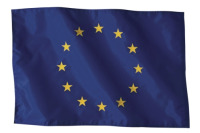
Some European banks may NOT be UK protected...
It is possible for a bank to be operating in the UK with the FSA's full approval, yet the protection you get is not provided by the UK government. It's not banks owned by far flung countries like India or Kenya you need watch, but European owned banks.
That's because banks from the European Economic Area are allowed to opt for a slightly different protection, called the Passport scheme, which means if they went bust, you'd have to claim money back from the bank's home country's compensation scheme.
Banks from outside Europe can't do this, and therefore if they operate here have full UK compensation.
Save with one of these and all your savings safety depends on the stability & solvency of a foreign government.
Of course some countries may be more financially stable than the UK, but do remember you're then reliant on a government you don't have a vote for to actually choose to pay out.
On a positive note, since December 2010 all European countries are required to have a compensation limit of €100,000 (the UK uses £85,000 as we aren't in the Euro). So, whereas in the past the amount protected varies depending on the home country of the bank, this is no longer a factor.
If you have savings in a European bank that's currently fully covered by the FSCS, and it then decided to opt for the passport scheme, it would have to inform you of the change.
One final note, theoretically it's possible for a European bank to operate in the UK using only its home compensation scheme even if that's a lower than the UK scheme, so you'd be eligible only for that amount.
In this situation, the foreign bank will not be FSA regulated, and no banks currently mentioned on this site work that way (and we don't currently know of any that are); however if you find any foreign banks not mentioned here, be vigilant; ask it how its compensation works.
Which banks does this apply to?
Here's a list of the big non-UK savings banks and smaller top payers that have been in our best buys in the past few years
| Not covered by UK FSCS (Passport-exempted) |
100% protected by FSCS (No passport exemption) |
| Anglo-Irish Bank | Allied Irish Bank (UK) (Allied Irish ) |
| Bank of Cyprus | Asda (Santander) |
| ING Direct | Bank of Ireland UK |
| Triodos Bank | Citibank (Citigroup) |
| Clydesdale Bank (National Australia) | |
| Egg (Citibank) | |
| Firstsave (First Bank Nigeria) | |
| ICICI | |
| Yorkshire Bank (National Australia) |
Check out banks on the FSA website.
If you want to check out any bank's status yourself, simply follow these steps.
- Go to the FSA Listings.
Click through to the bank listings on the FSA website, select the most recent date, and you'll get a huge PDF document. - Search for non EEA incorporation.
All banks in the 'Banks incorporated in the United Kingdom' category are fully covered by the FSCS, while institutions listed under the catchy title of 'Banks incorporated outside the EEA authorised to accept deposits through a branch in the UK' only have their home compensation scheme, unless they are on the FSCS top up list.
Don't miss out on updates to this guide Get MoneySavingExpert's free, spam-free weekly email full of guides & loopholes
Will my bank or building society go bust?
Take a trip back four years and this question would've been laughed out of school. Yet 2007 and 2008 saw such massive tremors - with Northern Rock, Bradford and Bingley, Icelandic banks and Wall Street giants Merrill Lynch and Goldman Sachs experiencing various degrees of catastrophe - that everyone started asking ' Am I safe?'
Things may have stablised since, but take nothing for granted. For the moment, things appear to have calmed, but take nothing for granted.
When banks have gone bust - bailouts more common than payout...
While it's right to focus on the FSCS compensation scheme, as that's guaranteed by the UK government, actually it is the last line of defence.
When most banks collapsed during the financial crisis, politicians stepped in with alternative remedies. With both Northern Rock and parts of Bradford & Bingley it was nationalisation, and similarly with Kaupthing Edge its savings business was transferred to ING Direct.
That could be seen as a huge statement of intent that it'll take extreme action to avoid a bank going to the wall. Though of course since then the government has changed, so we don't know how it'd work now - but likely similar things would be tried.
The only UK savings bank that went into liquidation was Icesave. That happened as unlike fellow Icelandic bank Kaupthing, its structure meant it was technically an Icelandic bank, not a UK one. Yet even then the government covered every penny, not just the £35,000 compensation limit (as it was back then).
Even with this though, while the government intent seems to be for no one to lose any cash regardless of the amount they save, that ISN'T guaranteed. So it's important to think this way...
The UK govt. intent is to protect all savers, but only the first £85,000 is guaranteed so that needs to be the focus
How to assess a bank or building society's finances
Picking out a collapsing bank is an incredibly difficult thing to do; even the niche City specialists get it wrong, and it's certainly far from our speciality or the speciality of this site. That's why we focus on protection - which is far more important as you can be sure about it.
Worse still, predicting bank collapse could hasten or even cause a collapse, by creating a bank run where it wouldn't have happened otherwise (many suggest this happened to Northern Rock).
If you want to check the reported financial strength of a big public company check its credit rating , AAA being the best and then graded downwards.
Yet the sheer speed of change when there's financial contagion means even this isn't a particularly reliable indicator. To check your bank"s strength use Standard & Poor's, though it's not overly simple to use; for a quick search try Fitch Ratings instead.
It's also worth searching Google News for any stories about the company.
Is the FSCS big enough to cope?
The FSCS doesn't keep a pot of cash sitting ready and waiting. Instead, it has the power to operate a 'compulsory levy' on banks, insurers and others signed up to the scheme, as and when it needs the money.
The advantage of this is it can pull cash from more than just the affected sector (i.e. if an insurer went down, while other insurers must contribute first, above a set level banks would be asked too) so funds should be available.
In theory, this means should the worst happen and a bank goes out of business, the FSCS has the legal power to call in funds from major financial institutions to cover the compensation needed.
What if the FSCS didn't have enough money?
The FSCS has a cap on how much cash it can levy per year from financial institutions; from 1 April 2008 the overall capacity was set at just over £4 billion. Yet in the FSA's review document (page 77), it admits that £4 billion wouldn"t even cover the twenty-fifth biggest UK deposit taker, so it's nowhere near enough for the big banks!
The FSA documents confirm...
"5.51 The Government will therefore include provision in the forthcoming legislation to allow the National Loans Fund to lend to the FSCS. These loans will have to be repaid, with interest charged at appropriate market rates, out of future levies on the industry, as well as from the share of recoveries from the estate of the failed bank that accrue to the FSCS."
Which in a nutshell means if the fund didn"t have enough cash, the Government will lend it the money, and it will then try and get it back from the insolvent bank"s assets and by putting a levy on the banks for years to pay it back. This has since happened; the FSCS money that was used to help push through the takeovers of Bradford & Bingley and Kaupthing was borrowed from the government and will be paid back in future years.
This wasn"t always the case though. Two years ago it seemed there was no back up plan. The first we heard of the Government's willingness to back the scheme up was actually due to a TV programme... Find out more
Don't miss out on updates to this guide Get MoneySavingExpert's free, spam-free weekly email full of guides & loopholes
How to save in 100% safety
There are a number of techniques for this, including some accounts that are 100% safe above and beyond the normal limits (see 100% safe savings below), but that can mean getting lower interest rates, which is why for most people the golden rule is...
Spread your savings...
Putting money into more than one account doesn't just mean more of your money is protected, it also follows the sensible old adage "don't have all your eggs in one basket" therefore mitigating risk.
The techniques you adopt depend on the amount of cash you want to save.
- Under £85,000.
If you've less than £85,000 there's no problem in terms of protection. Yet if a bank went bust and you were to have to claim compensation this could take time (though the procedures have been sped up), and meanwhile you wouldn't have access to any cash. So it's still worth considering splitting money across more than one financial institution. - Over £85,000.
For those with bigger savings, in the unlikely event a bank or building society went bust, the golden rule is don't put more than £85,000 in any one financial institution; thus spreading your savings around a number of accounts.
This a perfectly sensible strategy; just use the tool above to check they genuinely are separate institutions. - Very large amounts.
For those with very large amounts of savings (for example a house sale) this could lead to so many accounts with £85,000 in each it becomes practically difficult to manage or you start sacrificing good interest rates to do so.
In this case, you may need to forget the £85,000 limit and just spread your cash into three or four different accounts. While you're not fully protected the act of spreading is at least mitigating a chunk of the risk.
There are usually nine or ten very competitive accounts, meaning you can save well over £850,000 in perfect safety. To help, at least ten top accounts are included in the Best Buy Savings Accounts article, so pick the highest payer then work your way down.
 Plus any new best buys go in the weekly email.
Plus any new best buys go in the weekly email.
100% safe ways to save
It's also possible to get 100% safety via using a variety of different techniques
- National Savings and Investments (NS&I;)
All money in the state owned bank NS&I; is fully backed up by the government, meaning money put in there is as near to 100% safe as you can get.
While technically it doesn't have any more protection than any other institution, ultimately the protection most banks have is that if they go bust the government will bail them out. Here it's government owned, so as it'd take the government going bust for it to be in trouble it's as safe as it gets (if the UK went bust we'd all have bigger problems!)
Its most popular product is premium bonds, though the return on those aren't great (see the Premium Bond Probabililty Calculator) and you can only put £30,000 in there anyway.
It does have other products including normal savings account and cash ISAs, and at various times the rates are reasonable - good ones will always be in Top Savings guide. - Repay your debts
Most credit cards and loans cost a lot more in interest than you earn on your savings. So repay the debt with the savings and you"re quids in and once debts are gone, they're gone so its safe. See the Repay Debts with Savings guide. - Overpay on your mortgage
Many mortgages let you pay off a bit a month, or even in big chunks. Paying off a mortgage, say at 6%, is a bit like earning that amount on savings after tax as DECREASING your costs is similar to EARNING cash.
Plus, in a tough mortgage market, the less you borrow compared to the house's value, the better deals are available to you, so repaying now may lead to a better deal at remortgage time. Full info including a special calculator in the Should I Pay off my Mortgage? guide. - Buy a tax certificate
For those who are self employed, one place to put money safely is to pay your tax early. You can do this by buying a tax-certificate and you may earn taxable interest on it (see interest rates list).
This system is best for those with larger tax bills, putting money aside that is likely to be due within the next year. By doing this you're effectively saving cash with the government.
- Northern Rock is no longer 100% safe
From 2007 when it was taken over by the government until May 2010, all savings in Northern Rock were 100% safe, as like NS&I; it was a state owned bank.
Between May 2010 and 31 December 2011 it had the same protection as any other UK bank (£85,000) with the one exception of any fixed rate savings that were set up prior to 24 February 2010, which retain their fully government backed status until they mature.
On 1 January 2012 Virgin Money completed the purchase of the savings arm of Northern Rock. For now both banks have separate £85,000 FSCS protection. However, later in 2012 they will merge and there will be one set of protection across both. See full details in the MSE News story.













